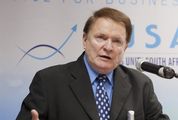IF THE 2008 financial crisis did anything apart from lose people money and jobs, it gave regulators and governments ammunition to clamp down. And they have taken up the task with gusto, including in South Africa, where a raft of new rules are being rolled out.
While South Africa’s central bank has had a financial stability department since 2001, the new "twin peaks" reforms allow it to intervene in the affairs of financial institutions to preserve stability without its actions being subject to shareholder approval or judicial review.
The Financial Services Board becomes the market conduct regulator, protecting the interests of consumers of financial products and policing providers.
One of the first new twin peaks rules to be implemented next year is what is referred to internationally as "treating customers fairly".
The "retail distribution review", which has been operational in the UK for a year already, is also in the throes of being implemented in South Africa and will completely overhaul the way financial products are sold.
The UK version, the first one globally, bans commissions; a similar stance is planned for South Africa.
But the product development manager at Stanlib, Farai Muronda, says one of the consequences in the UK is a drop of about 30% in the number of advisers. Another outcome is that banks, which have sold lots of financial products, have decided not to offer financial advice, adding to the shrinkage in the advice industry.
Online offerings, where people can pick their own investments, have become more popular due to the fact they are cheaper and offer freedom of choice.
"Big players are having to look at it and rethink their models. But there are a lot of sensitivities and concern around financial literacy," says Mr Muronda.
The changes in South Africa form part of a total retirement fund review, which has culminated in the production of a number of technical papers in the past 12 months.
"The Treasury has been very particular about bringing the industry along," says Mr Muronda. "They have been brutal about the assessment of costs. The problem is it does take some money to get products to clients."
The head of best practice, research and development at Alexander Forbes, Michael Prinsloo, says one of the major changes that can be expected is a consolidation of the industry itself. Mid-year Treasury reforms have spoken of the need to consolidate the number of funds available in the retirement sector from 3,000 to 100.
Mr Prinsloo says cutting it down to 100 may be a little extreme, but he definitely thinks consolidation will be healthy, as 60% of these funds service only 1% of people.
He would like to see employers doing more to help too, as well as for unnecessary costs to be eliminated. But he cautions that the cutting of costs must not "throw the entire value chain out".
Dave Crawford, who runs his own employee finance guidance company, says a "lot of people are retiring and no one helps".
"There is no one talking to me, for example, but they want to legislate and say they have talked to all parties concerned."
One problem is that advisers can’t even work out the costs on some of the products being offered, Mr Crawford says.
Mr Muronda says companies should move away from selling returns to selling outcomes. "It is one thing to say we will give x%, but does that mean they will meet the outcome?"
While the circle is closing, he says there is an opportunity for product development around client facing propositions.
Unemployment remains a problem, and is holding back the industry’s potential, he says. "We need more people to join the economy. Outside of that it is difficult to see where flows will come from."
Asset managers are seeing moves away from money market funds as banks pick up their money market holdings to ensure they meet the new Basel III global liquidity funding. They are targeting short-term investments to provide the liquidity they need. For asset managers, the healthy flows are coming into balanced portfolios.
Mr Crawford says 85% of people retiring have living annuities, but 75% say that after five years their pensions are no longer keeping up with inflation.
He says while good advisers are making a lot of money, it is not in the interests of most advisers to be educators.
And 50% of people have never even seen an adviser, as advisers are not interested in low net worth individuals because they can’t make a living dealing with poor people.
Mr Crawford says the system needs incentivising in a different way. There are very few advisers in Canada, where they earn a fraction of what a life policy salesman earns in South Africa. Most advisers work for insurance companies for most of the day and advise part-time.
But Mr Crawford says the commission system "essentially rewards wrong behaviour".






















Register/Login
Close XMy News
You can only set up or view personalised news headlines when you are logged in as a registered user. Thereafter you can choose the sectors of industry in which you are interested, and the latest articles from those sectors will display in this area of your console.
Login or Register.Top Stories
My Watchlist
You can only set up or view your share watchlist when you are logged in as a registered user. Thereafter you can select a list of companies and enter your share details to monitor their performance.
Login or Register.My Clippings
You can only clip articles when you are logged in as a registered user. Thereafter you can click on the "Read later" icon at the top of an article to save it to this area of your console, where you can return to read it at any time.
Login or Register.Change: -1.21%
Change: -1.31%
Change: -1.11%
Change: -1.12%
Change: -2.16%
Data supplied by Profile Data
Change: 0.00%
Change: 0.00%
Change: -1.21%
Change: 0.00%
Change: 0.00%
Data supplied by Profile Data
Change: -0.42%
Change: -0.29%
Change: -0.33%
Change: -0.54%
Change: -0.19%
Data supplied by Profile Data
Change: 0.00%
Change: 0.00%
Change: 0.00%
Change: 0.00%
Change: 0.00%
Data supplied by Profile Data